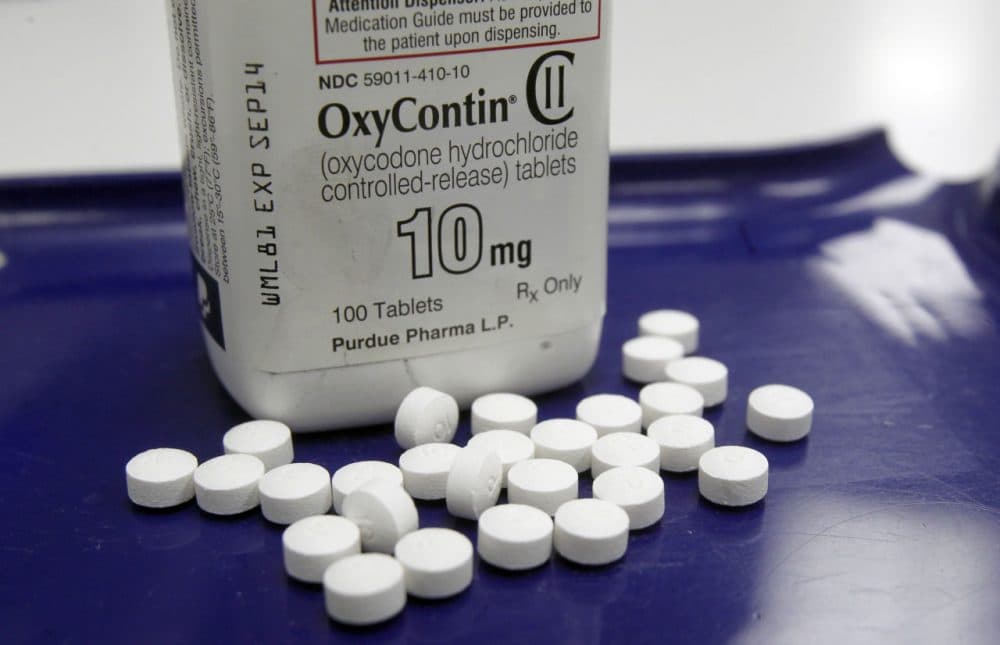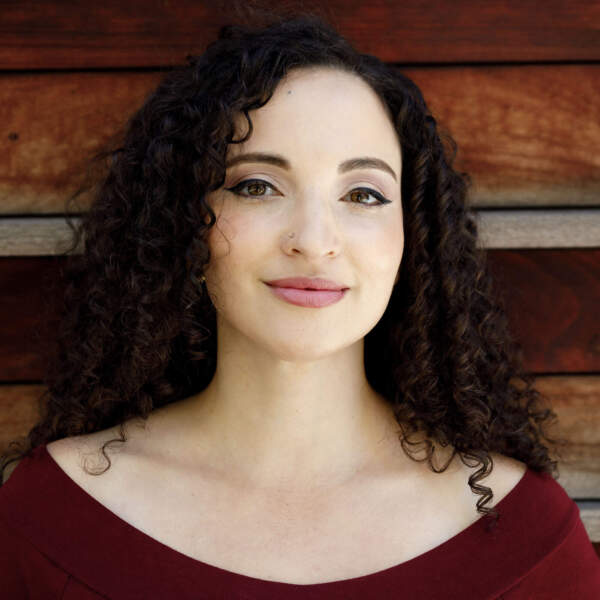Advertisement
More Mass. Communities Are Planning To Sue Big Pharma For The Opioid Crisis
Resume
The list of Massachusetts communities suing big drug companies over the opioid epidemic is growing.
The lawsuits name drug companies and opioid distributors, alleging they did not properly monitor prescription painkillers flooding communities.
Unlike legal action at the state level, these suits would seek damages that would go directly to the communities that sign on, and any legal fees would be paid based on a percentage of any settlement with the companies.
Boston attorney Peter Merrigan works at Sweeney Merrigan, one of a handful of law firms working on this. So far, he's representing five Massachusetts communities, including Greenfield, which is where he's from.
Interview Transcript
Deborah Becker: Why are you filing these lawsuits?
Merrigan: It's a tremendous opportunity to not only play defense but also play offense. The goal is to get compensation for the communities that will help them abate damages in the future.
Is this litigation modeled after the litigation against the tobacco companies that resulted in a settlement in the '90s?
It's similar. One big difference is that we're focusing on cities and towns. The tobacco litigation, the attorney general sought damages for the state. With respect to the opioid litigation, that's happening as well: The attorney general is pursuing damages in Massachusetts. In this suit, we're focusing on the communities.
Because in the tobacco suit, that didn't necessarily happen. The money didn't necessarily go back to the communities.
It was a case by case situation. Some of the money went back to the communities but ultimately, it went back to the Legislature and it's charged with spending the dollars as is necessary.
It seems like there could be big obstacles to this lawsuit. In the case of tobacco, people were using a product as were instructed and got sick anyway. Here, you're saying people were not using the drugs as instructed and got sick. Do you think that's going to be difficult legally?
I understand that argument and I don't agree with it, mainly because the use of opioids creates a foreseeable dependency. They're synthetic heroin. They're marketed as chronic, long-term, everyday pills to take, and as a result of that, it is foreseeable from a legal perspective that people are going to become addicted to it and when they become addicted to it, they're going to seek out other means to get opioids and when those options are no longer available, the next step is heroin.
They were marketed to doctors not consumers. Legally, how does that work?
When opioids were coming on the market, the Controlled Substances Act of 1970 said "we know these drugs are addictive." Congress said [to drug companies], "we're going to give you the opportunity to make billions of dollars, but you have to do one thing: You need to report to the DEA any suspicious orders." So if the sale of opioids is increasing in any substantial way from one month to the next, that's a suspicious order. With respect to the distributors, it arises from the failure to report suspicious orders.
What do you say to people who say this is a lot of legal wrangling to get Big Pharma to pay for this crisis?
Big Pharma absolutely should pay for this crisis. We're seeking damages for these communities to help them recover all that they've spent with respect to EMS, law enforcement, needle exchanges, Narcan — and those are all dollars coming directly out of the community. We're also seeking an abatement fund on money that communities can use to go forward and recover. We feel genuinely protective of our communities.
We've experienced it personally with family members. We've had a cousin pass away from an overdose. We have other family members who have been affected by it. My father was a judge who started one of the first drug courts in the state out in western Massachusetts. It's not happenstance that we're working on this.
This segment aired on December 6, 2017.

